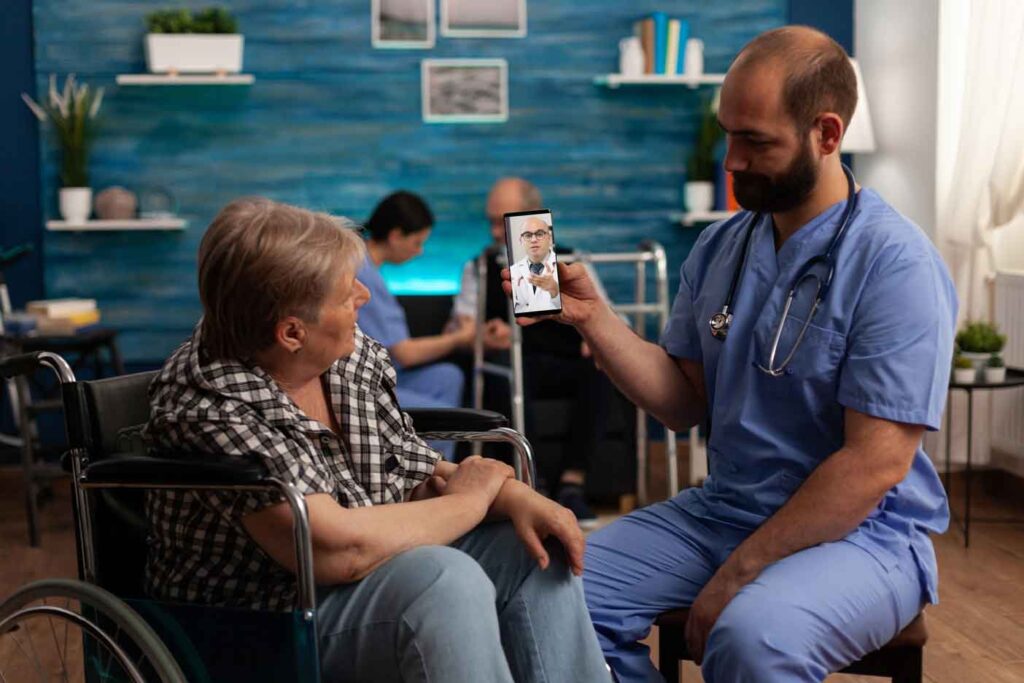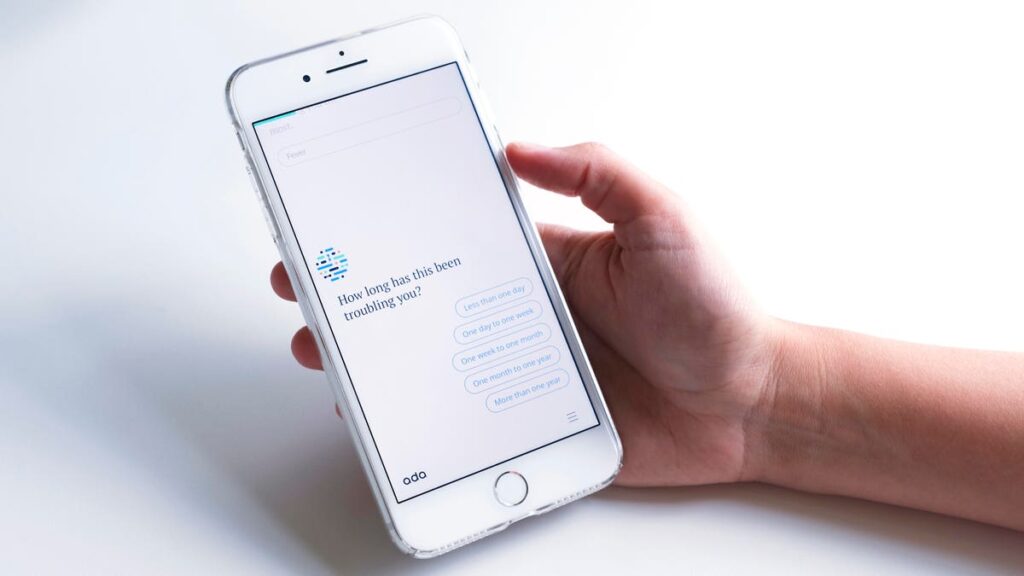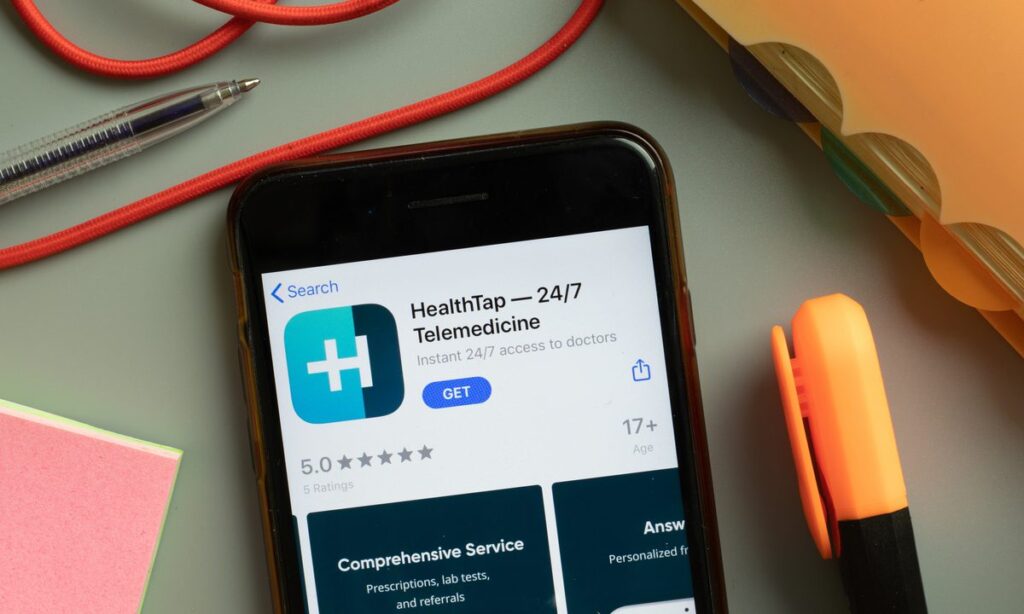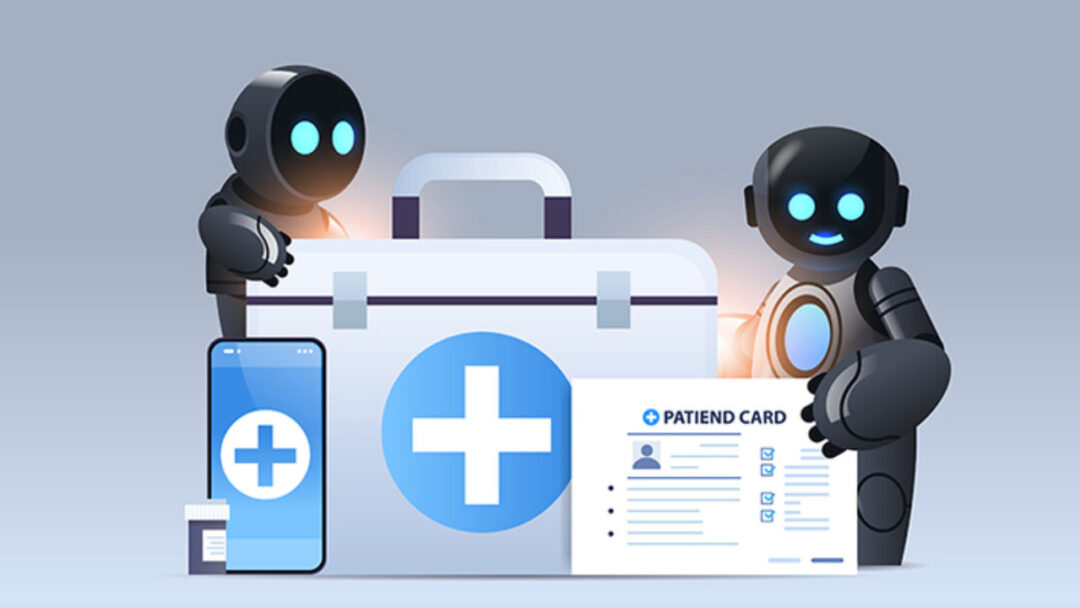Healthcare chatbots are revolutionizing the medical industry by providing personalized, immediate assistance to patients and healthcare providers. They are programmed to interact with users, answer queries, and guide patients through their health journeys, using AI to mimic human interactions. Here, we will examine the top 10 healthcare chatbots on the market today, summarizing their features, and exploring their pros and cons.
1. QliqSOFT

Source: qliqsoft.com
QliqSOFT offers a healthcare chatbot solution that incorporates AI technology to create efficient and patient-centered healthcare communication. Designed for seamless interaction across all healthcare channels, QliqSOFT’s chatbot supports virtual visits, triage, patient engagement, and post-discharge instructions. It’s equipped to handle both patient queries and administrative tasks, assisting healthcare organizations in delivering timely and personalized care.
Pros: QliqSOFT stands out for its versatility, providing not only patient support but also valuable administrative assistance to healthcare organizations. This dual functionality helps streamline communication and facilitates more efficient healthcare delivery.
Cons: While QliqSOFT’s chatbot offers numerous benefits, some users report occasional difficulties with the integration of the platform into existing systems. This could lead to challenges in achieving full functionality, particularly for organizations with complex infrastructure or unique requirements.
2. Ada Health

Source: forbes.com
Ada Health’s chatbot utilizes artificial intelligence and an extensive medical database to assist users in understanding symptoms and potential conditions. With the ability to answer a multitude of health-related questions, Ada provides a platform for users to access reliable health advice without leaving their homes.
Pros: Ada Health is praised for its ability to diagnose a wide range of conditions accurately, potentially helping reduce unnecessary doctor visits. It’s also multilingual.
Cons: Some users have reported that Ada may be overly cautious, suggesting serious conditions for minor symptoms.
3. Babylon Health
Renowned for its digital health consultations and symptom checking capabilities, Babylon Health’s chatbot provides personalized healthcare services. The chatbot utilizes AI to replicate human interactions, fostering a positive user experience while maintaining a high level of medical accuracy.
Pros: Babylon offers a user-friendly interface and has the ability to connect users with doctors for video consultations.
Cons: The AI is limited in understanding complex symptom descriptions, which can sometimes lead to inaccurate advice.
4. Your.MD

Source: shemmassianconsulting.com
Your.MD is a health information platform that offers users a comprehensive symptom checker and guides them to suitable health services. By promoting accessible health knowledge, Your.MD helps to empower individuals to take control of their health outcomes.
Pros: This chatbot offers a large resource library on health conditions, making it a great tool for patient education.
Cons: Your.MD might not be as effective with rare or complex health conditions, and its symptom checker is not always precise.
5. Sensely
Sensely’s chatbot, known as “Molly,” combines AI technology with a friendly user interface to provide clinical advice and help monitor symptoms. By supporting chronic disease management and patient engagement, Sensely is changing the way patients interact with healthcare services.
Pros: Sensely is excellent for regular monitoring and patient engagement, making it ideal for chronic disease management.
Cons: It’s currently only available in English, and may not be suitable for acute, severe medical issues.
6. Buoy Health

Source: techrseries.com
Buoy Health’s chatbot provides personalized medical advice, assisting users in understanding their symptoms and guiding them to appropriate medical resources. Buoy Health uses advanced AI algorithms to provide personalized insights and offers potential next steps for users to consider.
Pros: Buoy is user-friendly and highly accurate in symptom checking, assisting in early detection and prevention.
Cons: Buoy lacks the ability to connect users directly with healthcare professionals for follow-up.
7. Gyant
Gyant provides an AI chatbot that interacts with patients to assess symptoms and direct them to the right care pathway. By combining AI and medical expertise, Gyant helps alleviate pressure on healthcare professionals and ensures patients receive the care they need.
Pros: Gyant is effective in triage and directing patients to the right care pathway, potentially reducing strain on healthcare systems.
Cons: Its capabilities are currently best suited for primary care scenarios, rather than complex or specialized health concerns.
8. HealthTap

Source: pymnts.com
HealthTap’s chatbot connects users with real doctors for medical advice. This AI-powered chatbot can answer health-related questions, provide diagnosis suggestions, and even help with treatment plans, leveraging a vast database of doctors’ insights and professional advice.
Pros: HealthTap offers a unique “Doc.AI” that uses natural language processing to understand and respond to medical queries in a conversational manner.
Cons: The quality of advice depends on the available doctors’ responses and it might not always be able to provide in-depth analysis for certain queries.
9. Infermedica
Infermedica’s AI chatbot focuses on preliminary diagnosis and guiding users to appropriate care based on their symptoms. With its detailed symptom checker and pre-diagnosis capabilities, Infermedica’s chatbot is a reliable tool for initial health consultations.
Pros: Infermedica excels in its diagnostic support, easing the burden on primary healthcare providers.
Cons: Infermedica chatbot might sometimes miss subtleties in user responses, leading to less accurate symptom checking.
10. Mediktor
Mediktor’s chatbot provides reliable pre-diagnosis, symptom checking, and decision-making support. Mediktor stands out for its high accuracy, user-friendly design, and ability to provide quick, clear, and reliable health-related advice.
Pros: Mediktor boasts high accuracy in symptom checking and a user-friendly design, allowing it to provide quick and precise health-related advice.
Cons: Mediktor’s functionality can be limited when dealing with complex symptoms, as it’s primarily designed for more common conditions.
In conclusion, these top 10 healthcare chatbots each offer unique strengths and solutions to meet a wide range of health needs. From symptom checking to regular monitoring, from patient education to direct consultations with doctors, chatbots are playing a crucial role in improving access to healthcare, reducing the burden on healthcare professionals, and fostering patient engagement. However, while they can help guide patients, they should not be used as a substitute for professional medical advice or care.

